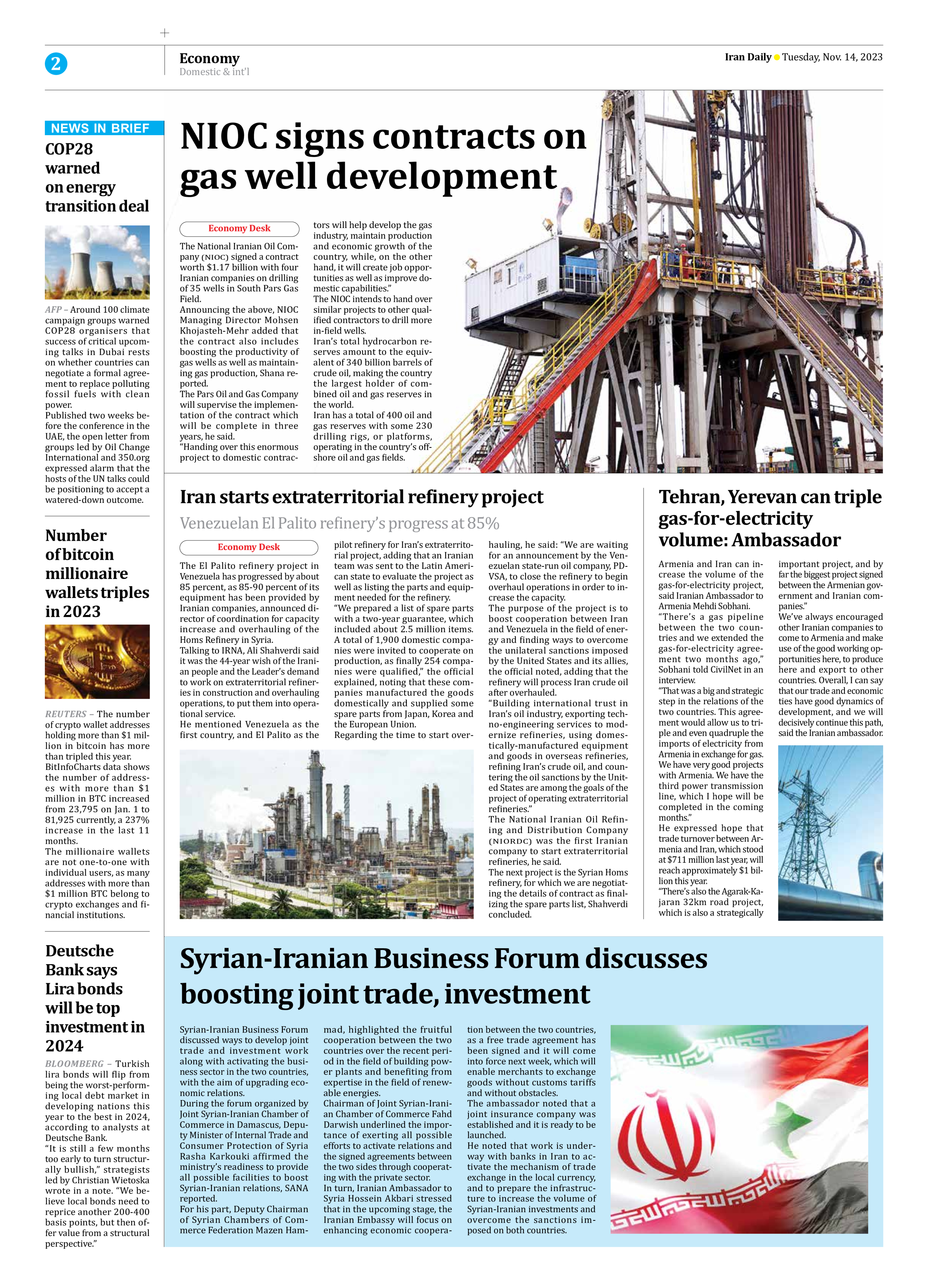
Iran starts extraterritorial refinery project
Venezuelan El Palito refinery’s progress at 85%
The El Palito refinery project in Venezuela has progressed by about 85 percent, as 85-90 percent of its equipment has been provided by Iranian companies, announced director of coordination for capacity increase and overhauling of the Homs Refinery in Syria.
Talking to IRNA, Ali Shahverdi said it was the 44-year wish of the Iranian people and the Leader’s demand to work on extraterritorial refineries in construction and overhauling operations, to put them into operational service.
He mentioned Venezuela as the first country, and El Palito as the pilot refinery for Iran’s extraterritorial project, adding that an Iranian team was sent to the Latin American state to evaluate the project as well as listing the parts and equipment needed for the refinery.
“We prepared a list of spare parts with a two-year guarantee, which included about 2.5 million items. A total of 1,900 domestic companies were invited to cooperate on production, as finally 254 companies were qualified,” the official explained, noting that these companies manufactured the goods domestically and supplied some spare parts from Japan, Korea and the European Union.
Regarding the time to start overhauling, he said: “We are waiting for an announcement by the Venezuelan state-run oil company, PDVSA, to close the refinery to begin overhaul operations in order to increase the capacity.
The purpose of the project is to boost cooperation between Iran and Venezuela in the field of energy and finding ways to overcome the unilateral sanctions imposed by the United States and its allies, the official noted, adding that the refinery will process Iran crude oil after overhauled.
“Building international trust in Iran’s oil industry, exporting techno-engineering services to modernize refineries, using domestically-manufactured equipment and goods in overseas refineries, refining Iran’s crude oil, and countering the oil sanctions by the United States are among the goals of the project of operating extraterritorial refineries.”
The National Iranian Oil Refining and Distribution Company (NIORDC) was the first Iranian company to start extraterritorial refineries, he said.
The next project is the Syrian Homs refinery, for which we are negotiating the details of contract as finalizing the spare parts list, Shahverdi concluded.







